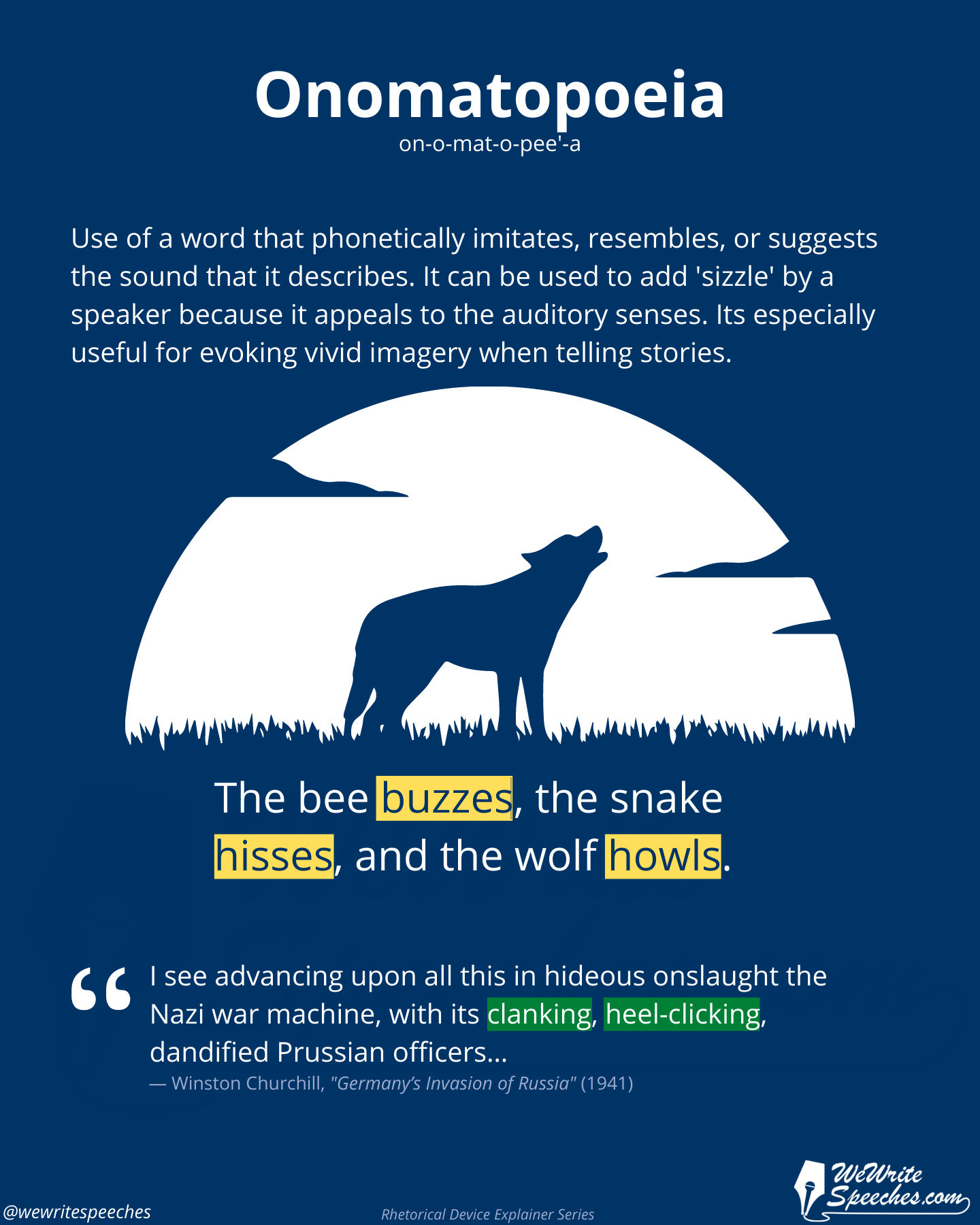Rhetorical Device: Onomatopoeia
Onomatopoeia is a rhetorical device that involves the use of words that imitate the sound they describe. It is derived from the Greek words "onoma" (name) and "poiein" (to make), meaning "to make a name (or sound)". According to Britannica it occurs frequently in poetry, where a line of verse can express a characteristic of the thing being portrayed. Onomatopoeia is used by public speakers, but it is particularly useful for writers because the words evoke the sound and make reading the piece feel like a multi-sensory experience.
Examples of onomatopoeia include words like "buzz", "hiss", "crash", and "bang". Onomatopoeia is used to create a vivid and sensory experience for the listener, allowing them to better visualize and imagine the words being spoken. Compare the vividness of "the car screeched to halt" with "the car stopped suddenly".
It can also help to add an emotional quality to language, as certain sounds may be associated with certain feelings or experiences. When used effectively, onomatopoeia can help to enhance the impact of a message and engage the listener's attention.
Examples
Let freedom ring from every hill and molehill of Mississippi. Martin Luther King, “I Have a Dream” (28 August 1963)

I see the 10,000 villages of Russia, where the means of existence was wrung so hardly from the soil, but where there are still primordial human joys, where maidens laugh and children play I see advancing upon all this, in hideous onslaught, the Nazi war machine, with its clanking, heel-clicking, dandified Prussian officers, its crafty expert agents, fresh from the cowing and tying down of a dozen countries. Winston Churchill, “Broadcast on the Soviet-German war” (22 June 1941)
In the mid-19th Century, the great American writer Henry David Thoreau found himself so fed up with the pace and change of Industrial society that he moved to a cabin in the woods by Walden Pond. Call it the first digital cleanse. Yet even there, where he hoped to find a bit of peace, he could hear a distant clatter and whistle of a steam engine passing by. “We do not ride on the railroad,” he said. “It rides upon us.” Tim Cook, “International Conference of Data Protection and Privacy Commissioners Keynote” (24 October 2018)
The hours of this day are rapidly flying, and this occasion will soon be passed. Neither we nor our children can be expected to behold its return. They are in the distant regions of futurity, they exist only in the all-creating power of God, who shall stand here a hundred years hence, to trace, through us, their descent from the Pilgrims and to survey, as we have now surveyed, the progress of their country, during the lapse of a century. We would anticipate their concurrence with us in our sentiments of deep regard for our common ancestors. We would anticipate and partake the pleasure with which they will then recount the steps of New England's advancement. On the morning of that day, although it will not disturb us in our repose, the voice of acclamation and gratitude, commencing on the Rock of Plymouth, shall be transmitted through millions of the sons of the Pilgrims, till it lose itself in the murmurs of the Pacific seas.Daniel Webster, “Plymouth Oration” (22 December 1820)